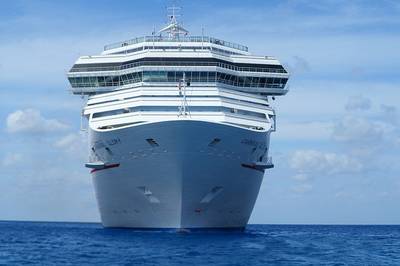Cruise Industry Disappointed by Findings of Critical LMU Report
New research by the UK's Leeds Metropolitan University (LMU) claims the cruise industry is ignoring its responsibility to the environments and societies it visits. The research has provoked a strong response from the Cruise Lines International Association (CLIA) according to shipping trade association Maritime London.
The study, published this month in the journal Tourism Management, analyses the industry’s lack of corporate social disclosure and ranks companies through analysis of their corporate social responsibility reports and websites to provide the “first cruise sector sustainability reporting index.”
According to LMU, 65% of the 80 cruise companies analysed worldwide do not mention corporate social responsibility on their websites and only 12 brands publish corporate social reports - all belonging to only four companies: Carnival Corporation, Royal Caribbean International, TUI and Disney Cruises.
Maritime London quotes Xavier Font, lead author of the study: “Most companies report soft data, such as statements from their CEOs, that are easy to copy and do not show real change. Companies mostly report on their corporate vision and strategy, their credentials and their governance and management systems, but they fail to report on actual performance data on many key environmental and socio-economic indicators. Reporting on emissions, effluents, waste or water is the result of eco-saving strategies and regulatory pressure. But not one of the 80 companies reports on the sustainability of the resources consumed or biodiversity actions, and few disclose their positive social or economic impact on destinations.”
The report says that more must be done by the cruise industry in terms of the environmental impact of cruise ship’s discharges, as cruises usually operate in highly valued coastal water and marine ecosystems. The report also refers to damage from anti-fouling coatings and ballast water and sewage discharges.
An LMU statement said: “The study also examined the socio-economic impact of the cruise industry and highlighted previous research which reported evidence of frequent violation of rights for disadvantaged groups including charges for medical examinations, visas, transport and administration putting cruise industry workers into a level of debt that cannot be repaid and is comparable to forced labour.”
It also says that there is limited public data to sustain the claim that the cruise industry contributes to the economy by creating jobs and contributing to the local economy of the destinations visited. In fact, the report says, “low spend cruisers are considered unproductive given the costs incurred by their impact.”
Responding to the LMU report, Cruise Lines International Association (CLIA) told London Matters: “The cruise industry is highly regulated on an international basis to exacting standards towards both the environment and labour welfare.”
A spokesperson said: “We find the Leeds Metropolitan report deeply disappointing as it is seriously flawed with inaccuracies and subjective commentary which fly in the face of the facts of the achievements that the cruise industry delivers throughout the world.”
He added: "In both areas we go above and beyond those high thresholds to enable our 21 million annual global customers to enjoy the seas in which they cruise and be cared and looked after by a motivated and content workforce. We put great store into our social responsibilities and we make an enormously positive impact on national economies all around the world, to the tune of Euros37.9 billion a year in Europe.
A recent study also shows cruising contributes Euros72 billion to the global economy, supports more than 775,000 jobs, and pays Euros24 billion in wages."
Source: Trade association, Maritime London














